Israel's reasonableness standard law takes effect amid protests
Israel begins to see economic ramifications of judicial reform • High Court hearing on new bill set for after summer recess
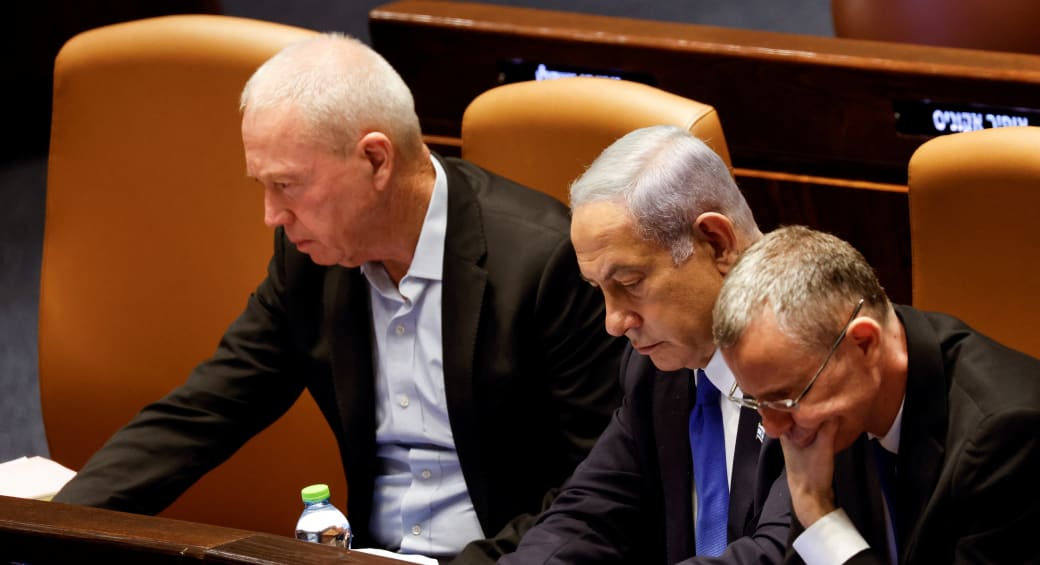

What is the next stage of the Israeli government's judicial reform?
The next bill that the coalition will likely promote is on the Judicial Selection Committee, perhaps the most contentious issue of judicial reform.
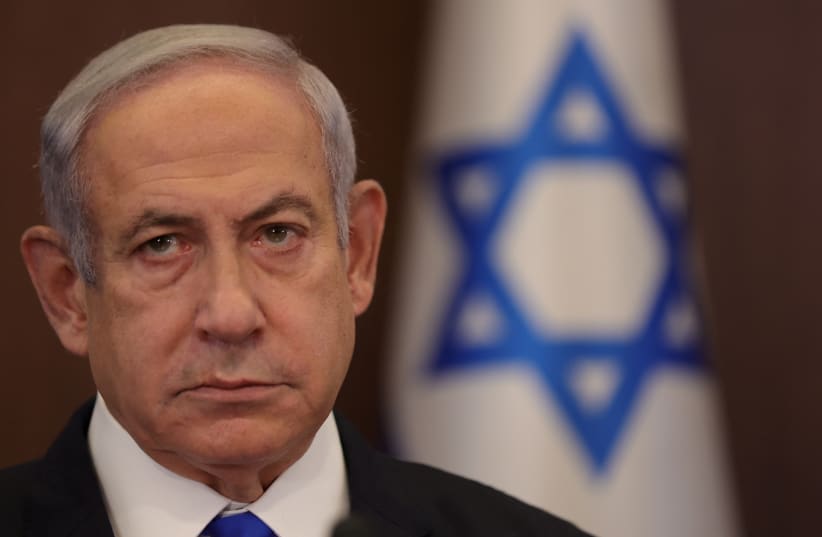
With the passing of the reasonableness standard bill on Monday, leaders on both sides of the debate have indicated that they believe that it is a non-decisive battle in a longer war.
The next bill that the coalition will likely promote, if negotiations don't resume as Prime Minister Benjamin Netanyahu proposed on Monday night, is on the Judicial Selection Committee.
The Judicial Selection Committee is perhaps the most contentious issue of judicial reform, a matter where experts, NGOs and negotiating parties have said were unable to even approach consensus.
Go to the full article >>US urges Israeli leaders to find compromise on judicial reform
The White House spoke out against the passage of part of the government's judicial reform plan on Monday.
"As a lifelong friend of Israel, President [Joe] Biden has publicly and privately expressed his views that major changes in a democracy to be enduring must have as broad a consensus as possible," a statement from White House Press Secretary Karine Jean-Pierre read. "It is unfortunate that the vote today took place with the slimmest possible majority."
The White House added that it understands "talks are ongoing and likely to continue over the coming weeks and months to forge a broader compromise even with the Knesset in recess," and expressed support for President Isaac Herzog's efforts in that vein.
Go to the full article >>Shots fired in the air by security officer at protest near Hatzerim
The security officer of Kibbutz Hatzerim shot in the air with a handgun during a confrontation with supporters of the government's judicial reform near the Kibbutz entrance in southern Israel, Israel Police stated on Monday evening.
The security officer and six other people were arrested by police forces who were called to the scene and restored the order, after a group of protesters had blocked the access road to the Kibbutz.
A protester told Maariv: "We arrived at Kibbutz Hatzerim and protested. At a certain point a mother of a special needs child came and wanted to pass, we wanted to let her through and then she let another man from the Kibbutz drive the car. He began driving erratically and hit two of our protesters. He got out of the car and then the confrontation began, all of a sudden the security officer pulled out the gun for the first time and threatened [us] and then simply shot in the air."
What are the Palestinians saying about Israel’s judicial reform crisis?
The tone of satisfaction in the statements of Palestinian political activists over Israel's deepening crisis is hard to ignore.

Palestinian political activists and columnists are closely monitoring the controversy in Israel surrounding the judicial overhaul, but are divided over its implications for both Israel and the Palestinians. They are also divided over the magnitude of the crisis between the US administration and the Israeli government.
While some Palestinians have expressed hope that the crisis would mark the beginning of the “collapse” of the “Zionist entity” and the “disintegration” of Israeli society and the IDF, others said they did not rule out the possibility that the Israeli government would initiate a military confrontation with the Palestinians or the Lebanon-based Hezbollah terror group as part of an effort to reunite the Israeli public.
The Palestinian Authority, Hamas, and other major Palestinian factions have thus far avoided commenting directly on the crisis.
Go to the full article >>Judicial reform protesters were hopeful until the last second
Protesters thought that even if the bill passed, their efforts would still bear fruit.

Horns blaring and chants of “Democratia!” were heard from down the road as thousands of protesters gathered in front of the Knesset entrance Monday to protest the reasonableness clause.
The protesters stood as close as they could to police barricades set up in front of the Knesset plaza, with ubiquitous Israeli flags that have become an emblem of the movement against the government’s judicial reform plans.
Nearby, thousands more were assembled along the hilled platforms of Wohl Rose Park to show support and add chants of their own. Higher up, people took shelter under trees and makeshift tents. Some ate sandwiches or refueled on water, while a few laid down for a short nap, harnessing their energy for the likely louder, more forceful demonstrations that would break out later in the day if the bill passed in its third reading.
Go to the full article >>NGOs prepare High Court petitions against reasonableness
If the petition is accepted, it would be the first time the court heard arguments to abolish a matter of a Basic Law.
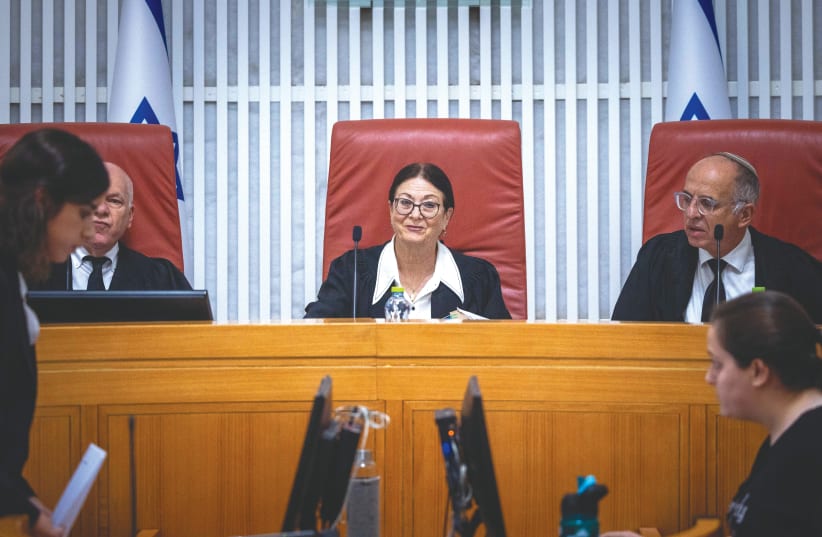
The Movement for Quality Government in Israel (MQG) and other NGOs have prepared petitions to the High Court of Justice in response to the potential passing of the judicial reform reasonableness standard bill on Monday.
Dr. Eliad Shraga, head of MQG, told The Jerusalem Post at the NGO's tent in front of the High Court building that they already had a petition ready "if the legislation will pass the third reading."
"We hope that the High Court will issue a temporary injunction," said Shraga.
Go to the full article >>White House calls passing of reasonableness bill 'unfortunate'
The reasonableness standard bill passed into law in a 64-0 vote on Monday.

The passing of the reasonableness standard bill on Monday was met with a combination of celebration from the government.
"We are now going out to a long recess now, and I am starting it knowing that we passed an important law, but without joy and with a real desire to bring together all parts of the people," said Justice Minister Yariv Levin in the plenum after the bill passed.
While Levin's speech combined celebration with an acknowledgment of the domestic crisis in the country, Finance Minister Bezalel Smotrich, who had tried to help reach a last-minute compromise before the vote, was entirely celebratory.
Go to the full article >>Resume judicial reform talks until November, Netanyahu calls
PM Netanyahu and MK Benny Gantz addressed Israel on Monday after the reasonableness standard passed.
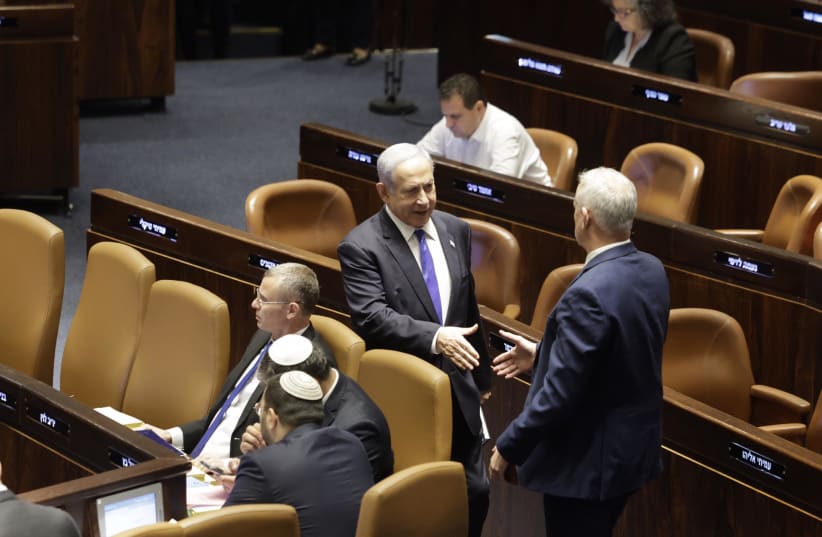
The coalition will turn to the opposition in the coming days in order to renew talks over the contentious judicial reforms and continue throughout the Knesset's summer recess and even until November, Prime Minister Benjamin Netanyahu said in a video statement on Monday evening, hours after the Law to Cancel the Reasonableness Standard passed its final vote.
The prime minister claimed that he had attempted to reach a compromise with the opposition on the bill until the very last moment, but that the opposition had turned down every offer.
"We can continue to argue and spar, but we also can talk and agree. Let us stretch out a hand to peace within us," he said.
Go to the full article >>PM Netanyahu refused to meet IDF chief before reasonableness vote
Netanyahu claimed that he couldn't meet with Chief of Staff Halevi because of technical scheduling issues.

Prime Minister Benjamin Netanyahu refused to meet with IDF chief-of-staff Lt. Gen. Herzi Halevi on Monday prior to the Knesset vote repealing the judiciary’s reasonableness standard, despite a request by the IDF.
A source with knowledge of the matter said that the Netanyahu narrative was that the meeting was not feasible simply for technical scheduling reasons.
The IDF would not publicly comment on the issue. However, earlier Monday, Netanyahu and Defense Minister Yoav Gallant announced that they had asked the IDF to brief the cabinet on the evolving status of the readiness of the IDF in the shadow of the debate over the government's repeal of the reasonableness standard.
Go to the full article >>Mossad chief: If gov't goes wrong, we will be on right side of history - report
All of the six living former Mossad chiefs either explicitly opposed the reasonableness standard repeal or called for a pause to arrive at a compromise.
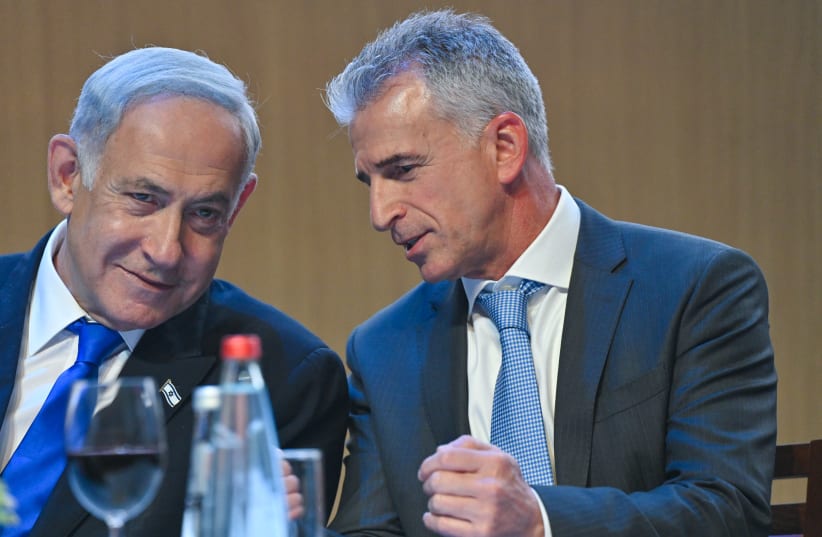
Mossad Director David Barnea on Monday said that if the government goes the wrong way, his agency will come out on the right side of history - but that such a point was not reached when the government repealed the reasonableness standard Monday afternoon, Channel 12 reported.
The Jerusalem Post can confirm that there have been high tensions within the Mossad regarding the issue and that Barnea is attempting to maintain the spy agency's cohesion while permitting open dialogue among its agents.
On Monday, a critical mass of Mossad officials demanded a dialogue with Barnea over government policy.
Go to the full article >>Israel's Judicial Reform
- The Knesset passed the bill to cancel the reasonableness standard into law on Monday, marking the first part of the government’s contentious judicial reform to pass into law